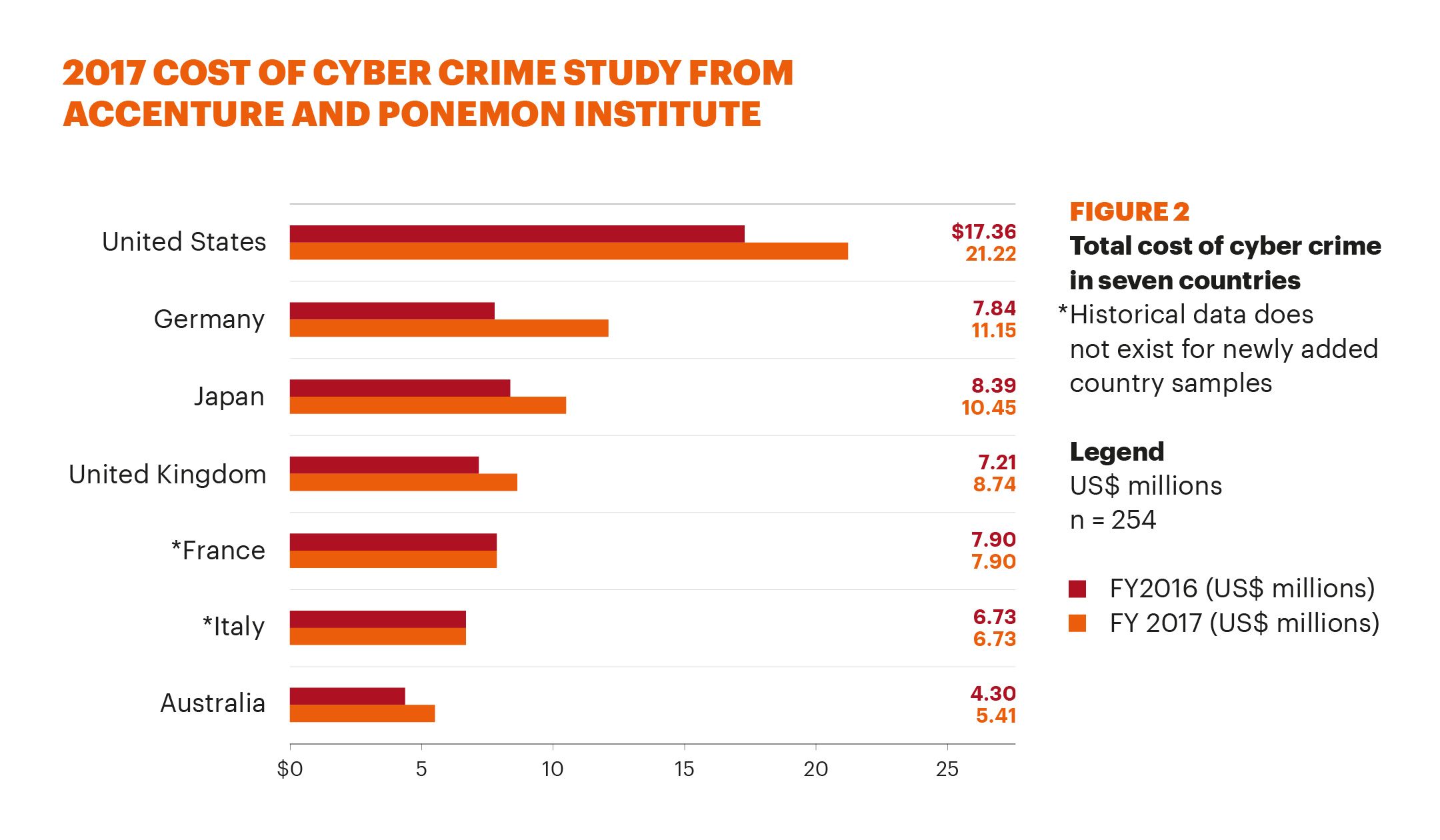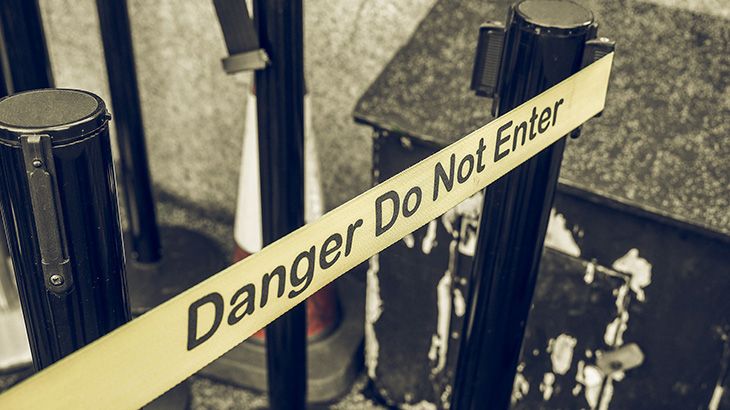This year, Accenture and the Ponemon Institute released their “Cost of Cyber Crime Study” for the 8th time. It contains all manner of interesting findings.
According to the study companies spend an average of 11.7 million dollars per year on their cyber security, revealing a substantial increase of 22.7 percent over the previous year. The surveyed companies also recorded an average of 130 cyber attacks over the year, 27.4 percent more than the year before – due in part to a massive increase in ransomware attacks through malware such as WannaCry and Petya.
For the “2017 Cost of Cyber Crime Study”, 2182 security experts responded to the survey at 254 companies in seven countries (Australia, Germany, France, Great Britain, Italy, Japan and the USA).
The study shows that cyber crime is most costly for companies in the US. At 21.22 million dollars on average, they shell out almost twice as much as companies from second-placed Germany (11.15 million dollars). Germany, however, recorded by far the largest relative rise in costs from 2016 to 2017.

Regarding the size of the company, the study shows (rather unsurprisingly) as already seen in the previous year that the larger the company, the safer. The smallest companies with the fewest “enterprise seats” paid 1726 dollars for cyber crime per employee, almost four times more than the largest companies with the most seats (436 dollars per worker).
The study also reveals significant differences between various sectors. The most money is spent by financial service providers, energy and utilities companies as well as aerospace and defense enterprises. By the way, the most costly means of attack were malware (by some distance) and web-based raids.
Encouragingly from a local point of view: Germany leads this year’s Security Effectiveness Score (SES) survey, developed by Ponemon. This index shows how efficiently a company’s investment in staff and technology succeeds in achieving both its security objectives and in using its limited resources. With an average SES of 1.03, Germany leads Japan (0.89) and the United States (0.75); by contrast Italy brings up the rear with a modest value of 0.15.
Email is one of the most common gateways for malware. Companies can secure their mailboxes with Retarus E-Mail-Security. The cloud service comprises several levels from basic functions such as Spam and Virus Protection to Advanced Threat Protection and innovative post-delivery identification with Patient Zero Detection®. You can find more details here or directly from your local Retarus representative.




